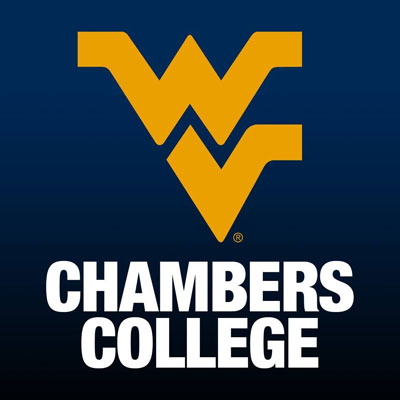Armed with keyboards, ones and zeros, a squad of West Virginia University students were among the 2,000 participants who competed in Operation Locked Shields, an international cyber defense exercise run by NATO Cooperative Cyber Defence Centre of Excellence in Tallinn, Estonia. The teams, which included members of the West Virginia and North Carolina National Guard, took orders from the Department of Defense and the Defense Information Systems Agency during the April 19-21 exercises.
As part of the U.S. Blue Team, students from engineering, cybersecurity, media and law enhanced their skills in defending national IT systems and critical infrastructure that were under 7,000 real-time attacks.
“The live-fire exercise gave our students a chance to see what it is like to defend against a large-scale, coordinated cybersecurity attack,” Christopher Ramezan, assistant professor of cybersecurity, said. “Not only are they gaining this experience, they’re also getting a chance to work with some of our nation’s best cybersecurity experts, and network with leaders in the DoD public sector, and experts from the private sector as well,”
Ramezan said students sharpened their skills for the event in hands-on lab exercises, exposing them to a variety of techniques and technologies that prepare them for the workforce.
“What we really emphasize though is resourcefulness, innovative thinking and problem solving,” Ramezan added.
Even with the preparation for taking on the role of national cyber rapid reaction teams deployed to assist a fictional country in handling a large-scale cyber incident, Locked Shields proved to be a unique challenge for students.
Deacon Barbazette, a management information systems major from the John Chambers College of Business and Economics stressed the importance of teamwork and practice during the exercise.
“I learned it’s very important to leave your ego at the door when participating in Locked Shield,” Barbazette said. “The ability to listen and learn from others is very important. Going into the final event I still felt very overwhelmed, but the ability to rely on my team and people much smarter than me alleviated a lot of the stress.”
Despite the challenging tasks they faced during the exercise, students gained new knowledge on how to tackle complex problems.
“I led a team of people during the exercise, so with that comes many different challenges in terms of communication, giving everyone the right tools for the job and making sure people are getting the help they need,” Jonathan Malcomb, a computer science major from the Benjamin M. Statler College of Engineering and Mineral Resources, said.
Reed College of Media student and public relations major Abigail Riggs said she learned how much variance exists in how crisis communication is handled across different countries.
“This was an eye-opening part of the operation that reiterated to me how important it is to understand your audience when communicating during a crisis,” Riggs said.
In addition to professional development, Locked Shields, an annual event since 2010, offers students a multitude of connections in the cyber defense industry, as they work alongside Aerospace Corporation employees and special forces operators, including members of the Defense Information Systems Agency, Army Corps of Engineers, Financial Services and Information Sharing and Analysis Center, U. S. Treasury and Bank of America.
Exercise participants were graded on how well they protected their networks while following the established rules of engagement for gameplay.
“We have tremendous talent at WVU and in West Virginia, so getting the chance to demonstrate our students’ talents on an international stage helps to showcase our abilities to the world, and puts West Virginia on the map,” Ramezan said. “I think this perfectly ties in with our land-grant mission.”
This was the University’s second year participating in Locked Shields, which helped lead to a partnership with U.S. Cyber Command’s Academic Engagement Network. Today, WVU is one of 84 educational institutions that will work closely with CYBERCOM, where students engage in applied research and innovation while gaining valuable cybersecurity workforce training.
-WVU-
th/05/03/22
MEDIA CONTACT: April Kaull
Executive Director of Communications
University Relations
304-293-3990; akaull@mail.wvu.edu
Call 1-855-WVU-NEWS for the latest West Virginia University news and information from WVUToday.
Follow @WVUToday on Twitter.
John Chambers College of Business and Economics
